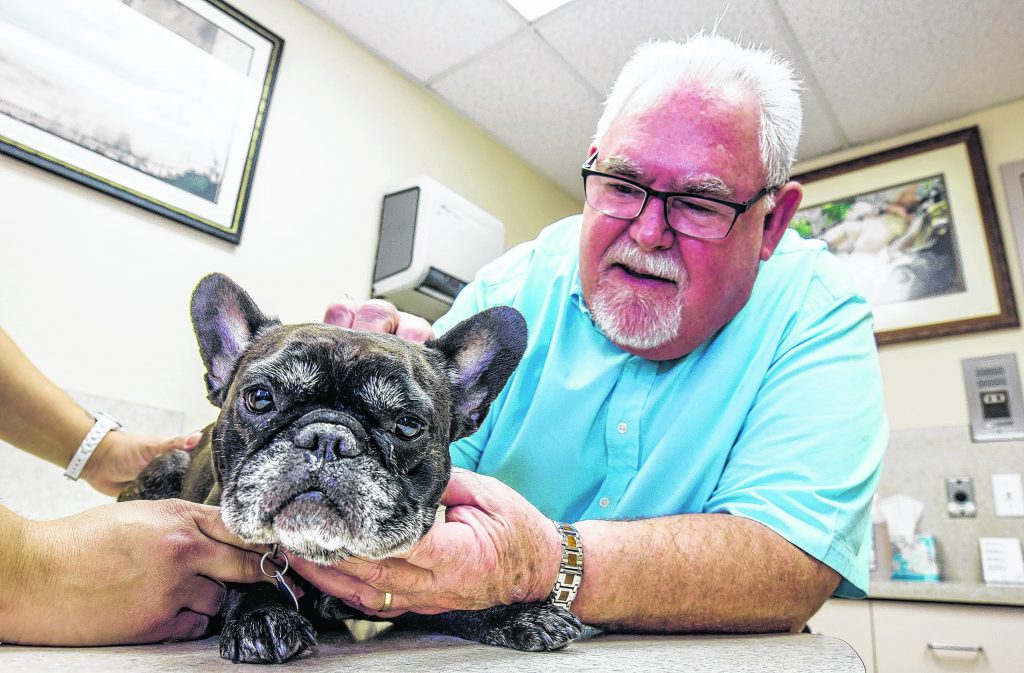 By Deborah Hilcove
By Deborah Hilcove
If you don’t already own a pet, you might like to reconsider and make it a New Year’s resolution.
Swedish research suggests early exposure to dogs and other animals can reduce children’s asthma risks. Nursing homes and hospitals often encourage visiting therapy dogs to lower stress. Dr. Lois Krahn of Mayo Clinic’s Center for Sleep Medicine in Scottsdale, says a pet in the bedroom might encourage better sleep. And Psychology Today says owning a dog will make a single male appear smarter, more attractive and sexier.
Once you own a dog—or cat, bird or exotic animal—you’ll find the field of pet medicine has exploded, similar to human medicine.
Many veterinary clinics now offer MRIs, ultrasound and laser surgeries, as well artificial limbs, cancer treatment and root canals. Diabetic cats can have insulin injections, even kidney transplants. Dogs can have a total hip—or an elbow or knee—replacement, and those with congenital heart defects can receive corrective surgery.
University and private laboratories are experimenting with gene therapy and recombinant DNA, laying the groundwork for biotechnical advances in cheaper, more efficient drug production.
Researchers at the University of Arizona are experimenting with a vaccine to prevent canine Valley Fever. In 2012, a commercial DNA blood test for Labrador retrievers was developed to detect hip dysplasia, the most common inherited orthopedic trait in dogs.
Dr. Thomas Gus, director of the longtime notable University Animal Hospital in Tempe, discussed some of the latest innovations in imaging and treatment technology.
“Whereas pets used to be outdoor animals, they’ve been brought indoors. And as they’ve become part of the family, owners are spending more on them. Last year, pet owners spent more than $14 billion on veterinarian care.”
He continues:
“Veterinarians are adopting many new technologies and choosing less-invasive options. This minimizes the cost and allows better outcomes. For example, we can use a needle biopsy to locate a mass or tumor, instead of opening a larger area for exploration and removal.
“Greater accuracy means less trauma with fewer complications. For soft tissue, laser surgery is precise and seals the blood vessels as it cuts. There’s less blood loss and faster healing. ”
One of the promising advances in veterinary medicine is an MRI, especially for neurologic, orthopedic and soft tissue treatments, and for cardiac disease studies. However, because an MRI is relatively expensive and requires anesthesia to keep the animal still, the less expensive ultrasound without anesthesia is often used. Another relatively new technology borrowed from human medicine is endoscopy, using scopes and fiber-optics with miniature video cameras to look into body cavities.
“X-rays, too, have been improved,” Gus says. “They’re digitized. Now we can have a specialist anywhere in the world look at the X-rays and offer interpretations.”
Because of losses due to trauma, birth or disease, scientists have been working with stem cell therapy for animal replacement implants. For example, some dogs are born without normal gut lining. Scientists at Johns Hopkins Children’s Center and the University of Pittsburgh have successfully regenerated and implanted healthy, functioning intestinal lining in dog colons.
Technology has introduced 3D printing which lays down microscopically thin layers of filaments instead of the ink image we’ve come to accept as commonplace. Some experiments involve collagen or stem cells as filament. These layers build on one another, producing models of organs or bones, allowing veterinarians and surgeons to grasp the internal structure and pet owners to understand surgical procedures.
“Even though we have all these advancements for better treatment, faster and more accurate diagnosis,” Gus says, “a lot of veterinary medicine is like the old kind of medicine. It’s the ‘Marcus Welby’ sort of medicine, where you have to know the whole body and an entire range of diseases and symptoms. It’s changing, though, and you’ll see veterinarians who specialize in dentistry or dermatology or cardiology—all the specialties of human medicine.”
But, according to Gus, some of the best advice for pet owners is to maintain a healthy diet along with appropriate vaccines and plenty of exercise. To prevent the heartache of loss, he adds, be sure to microchip your pet, making that a great resolution for 2016.
For further information:
University Animal Hospital, 2500 S. Hardy Drive, Tempe. Online at www.universityvet.com;
Therapy Dogs International, www.tdi-dog.org
Mayo Clinic Center for Sleep Medicine, www.mayoclinic.org
University of Arizona Valley Fever Center for Excellence, www.vfce.arizona.edu/valleyfeverinpets


